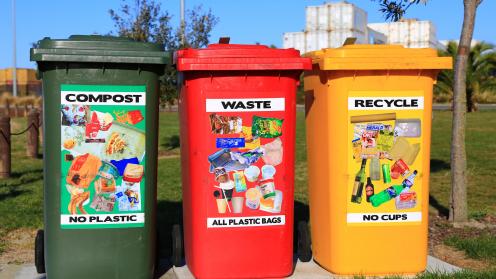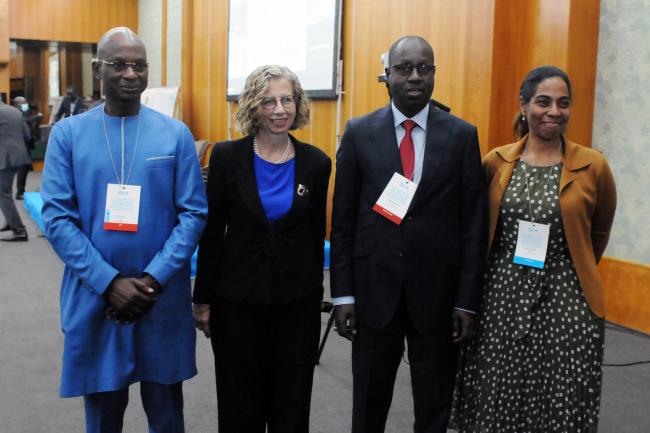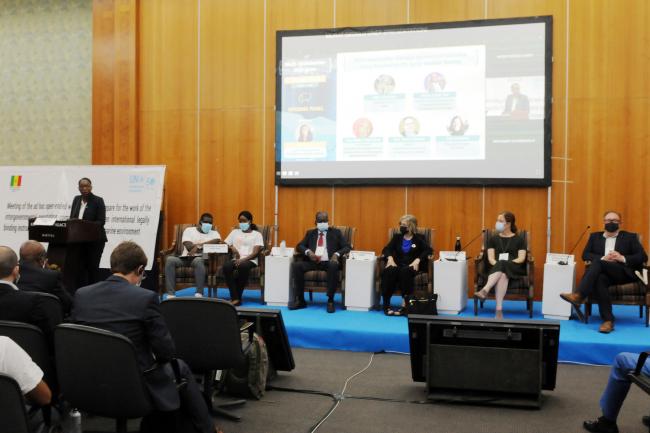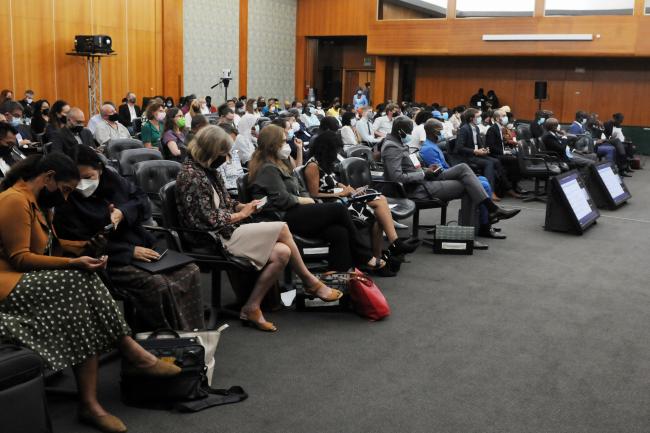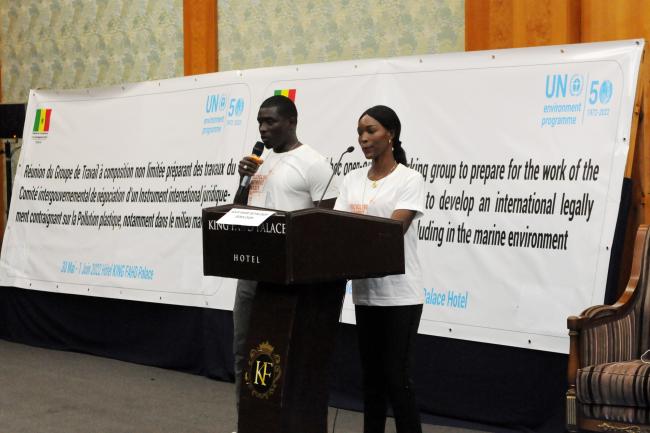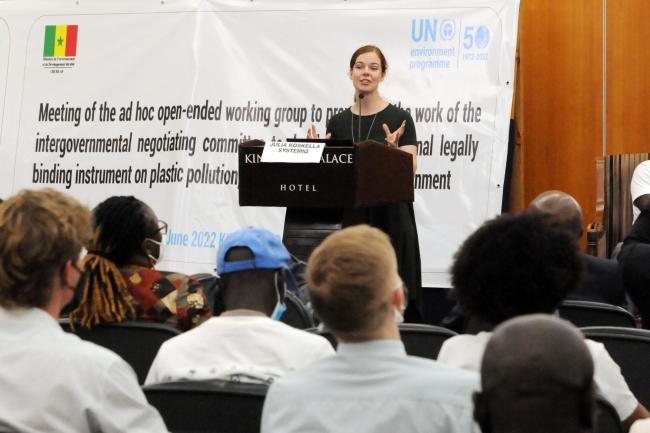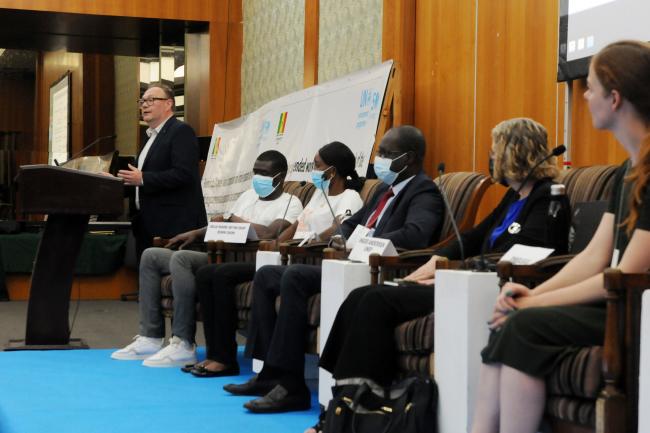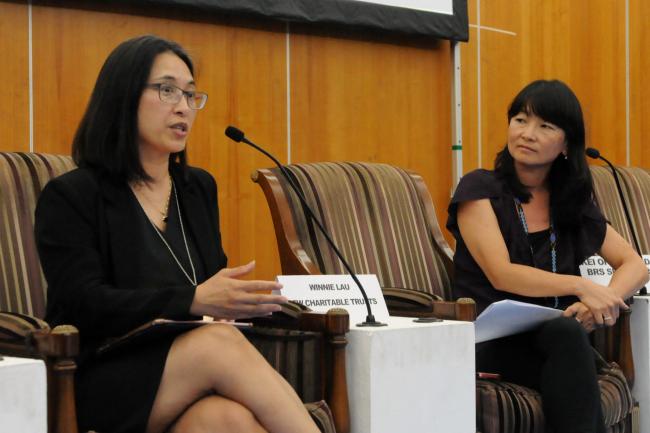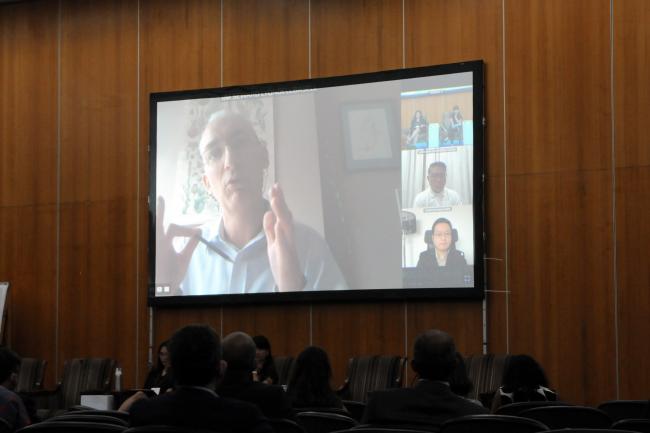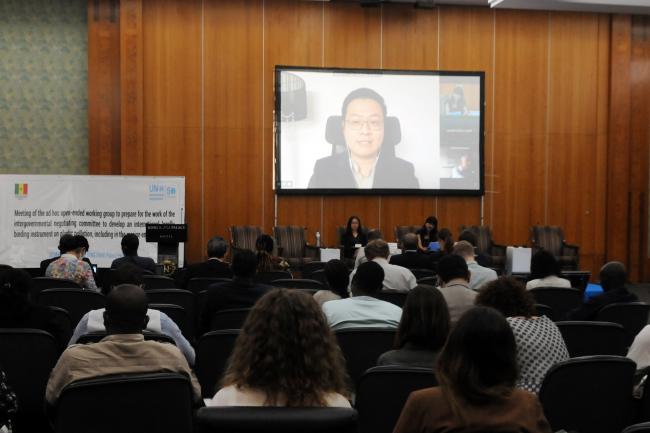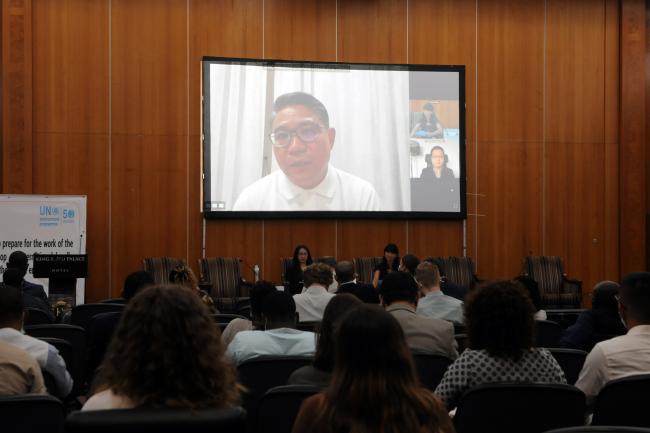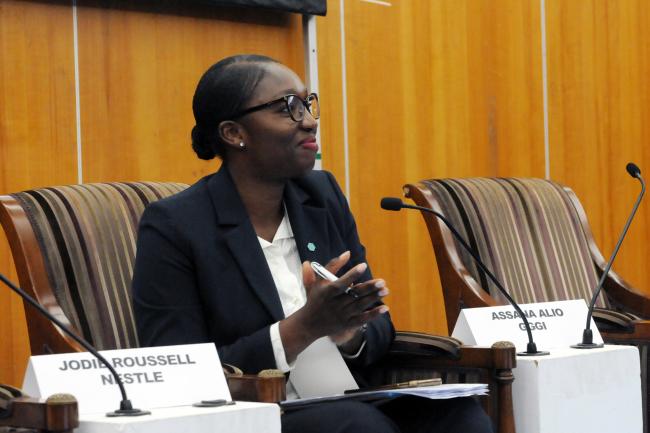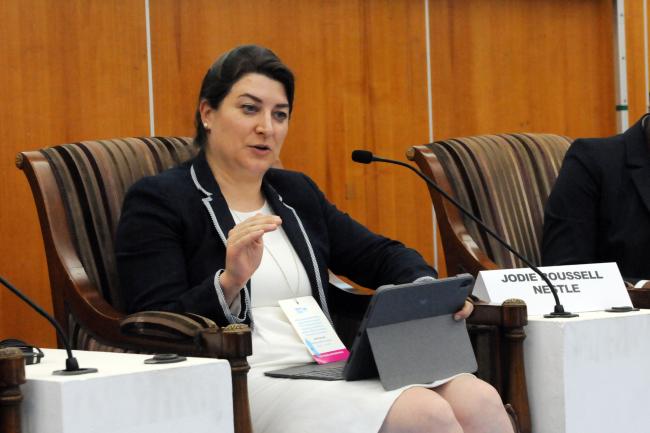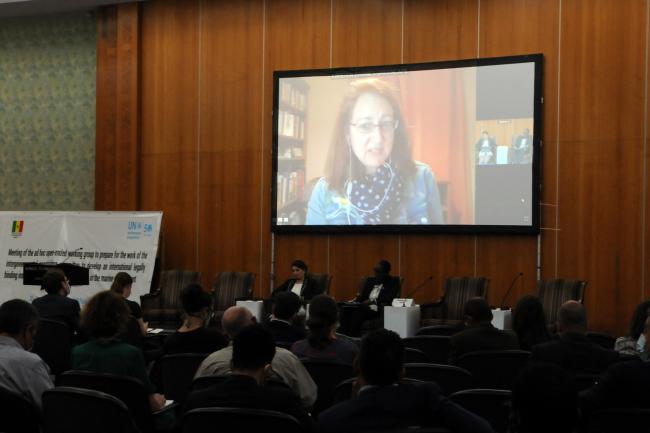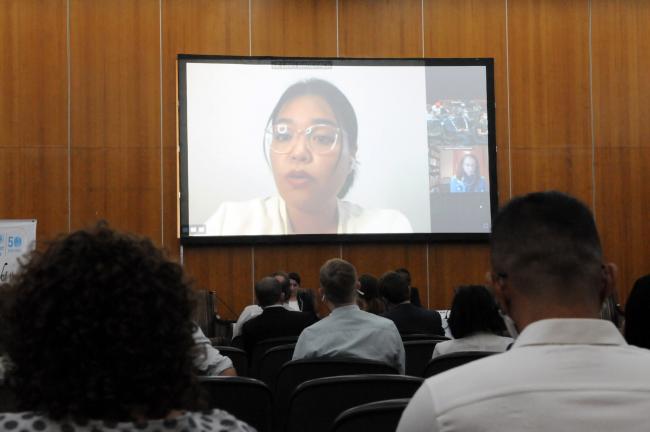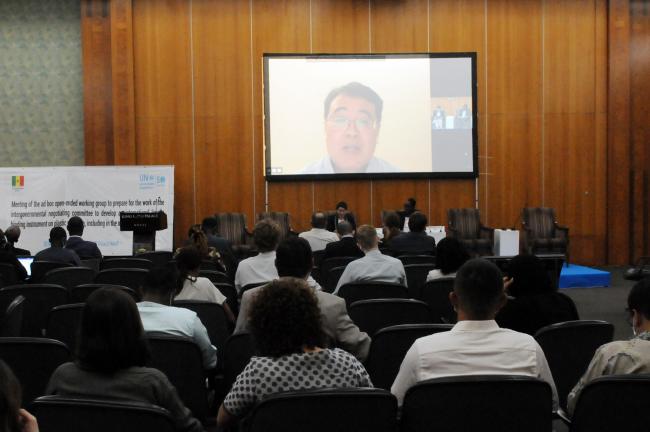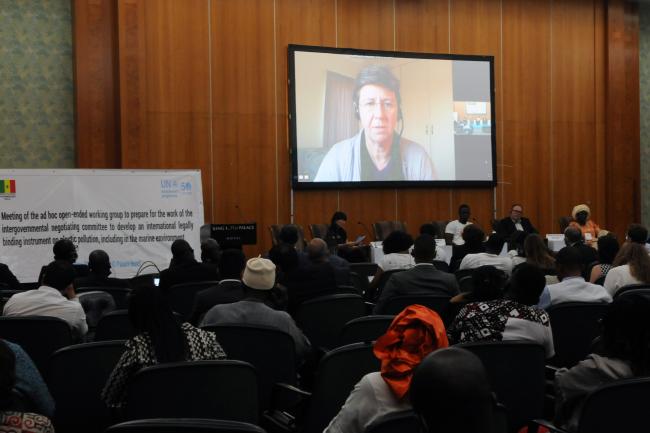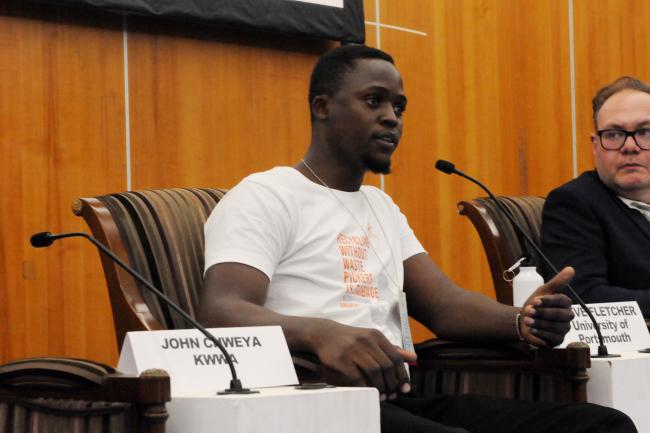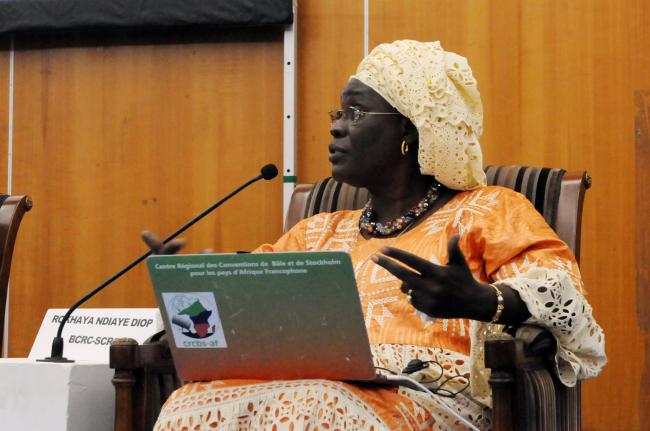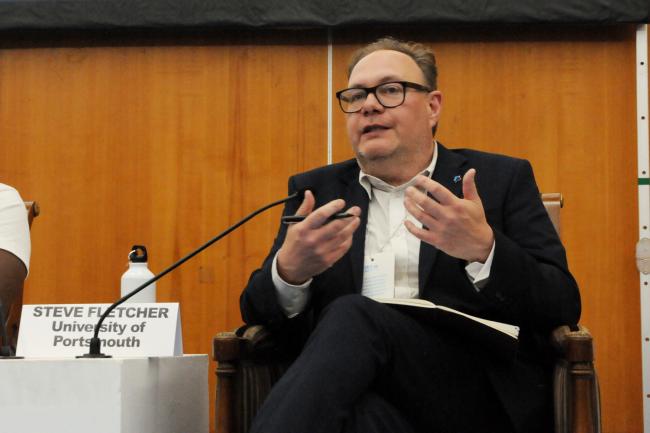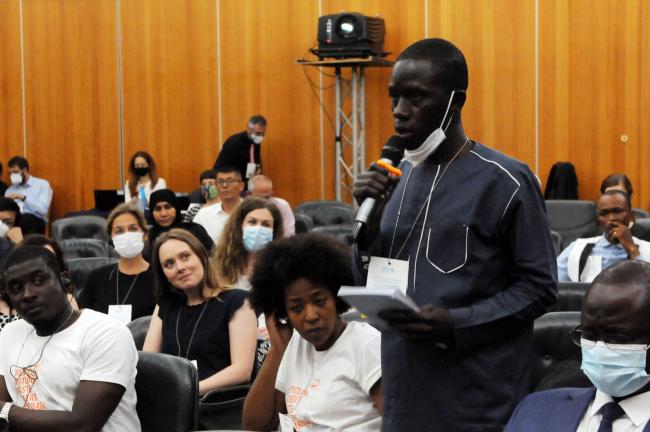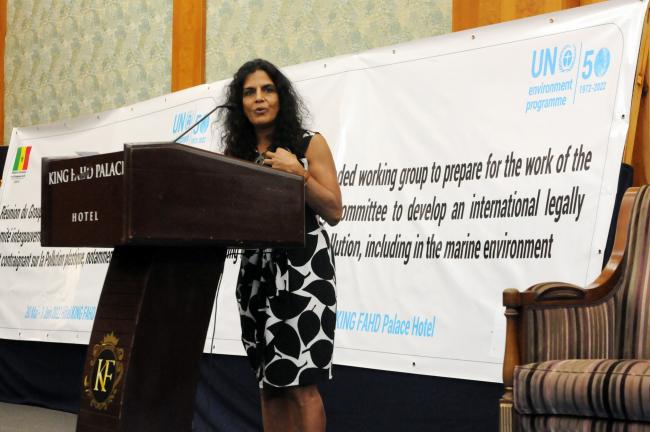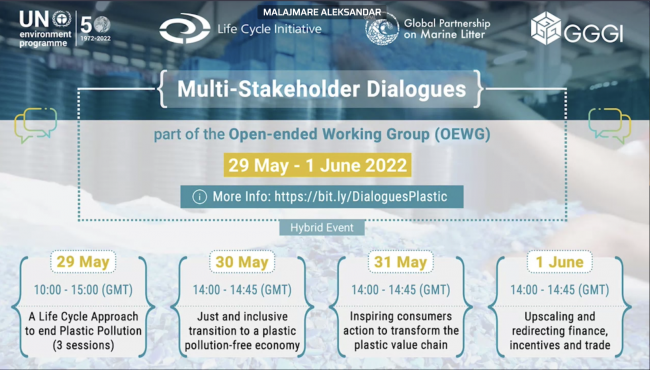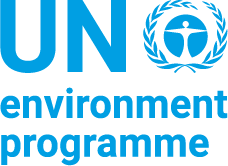On the first day of the meeting of the ad-hoc open-eneded working group (OEWG) to develop an international, legally binding instrument on plastic pollution, delegates participated in the first of four Multi-Stakeholder Dialogues. Moderator Assana Alio, Green Global Growth Institute, welcomed participants, noting that over 900 people had registered to participate either in-person or online.
Inger Andersen, Executive Director, United Nations Environment Programme (UNEP), underscored the need for all stakeholders addressing plastics pollution to “sing in the same direction;” highlighted the importance of a full life-cycle approach, including eliminating production of unnecessary plastic products; called for system-wide change and investing in circularity; and emphasized that the scale of change needed is enormous.
Abdou Karim Sall, Minister for the Environment and Sustainable Development, Senegal, outlined his countries legislative work to tackle plastic pollution, including by prohibiting the production, use and import of plastic bags and plastic products with a high environmental impact and accelerating momentum toward a circular economy.
Explaining that waste picking allows her to live and look after her children, Adja Mame Seyni Diop, Bokk Diom, described the difficult working conditions and lack of social welfare support when workers are injured. Noting that few people are asking waste pickers for input, she called for inclusion of waste pickers in national and international meetings.
Julia Koskella, Systemiq, highlighted key findings from a forthcoming UNEP Spotlight report on plastic pollution, noting that 150 million tonnes of plastic waste are already in the oceans. She underscored that global plastic waste is on track to triple by 2040 and said there is a credible pathway to reducing plastic pollution by 80% with today’s technologies.
Steve Fletcher, University of Portsmouth, elaborated on the findings from the upcoming report. He outlined five enablers of system change, including: a global goal that is ambitious, clear, time-bound and principled; national action plans; new monitoring and reporting systems for the lifecycle of plastics; learning and innovation; and provision of transition finance and support for delivery.
Panel 1: Thinking Upstream: Product and material innovation, product design
Moderator Kei Ohno-Woodall, Basel, Rotterdam and Stockholm Conventions introduced the panel, noting that over 10,000 chemicals are used in plastics, some of which are inherently hazardous and others which pose issues at the end of products’ life cycles. She invited panelists to share their insights into possible innovations to solve these issues.
Winnie Lau, Pew Charitable Trusts, emphasized the need for system change for this system-wide problem. She said it is critical to start by focusing on upstream plastic pollution, as downstream solutions will flow from how many and what kinds of plastic are produced.
Highlighting general agreement that system change is needed, Jim Seward, LyondellBasell, underscored that technology will have to evolve at an exponential rate to meet the challenges of plastic pollution and said that the key barrier is on the supply side, as infrastructure is an important bottleneck.
Zhanyun Wang, Swiss Federal Laboratories for Materials Science and Technology, said that chemical additives are a desirable part of many plastics, reiterating that over 10,000 chemicals are intentionally used in plastic production. He said chemicals of concern may be released during production, use, recycling and disposal of plastics, and can reduce the compatibility of many plastic streams, creating significant waste management challenges. He called for thinking about product design from a whole lifecycle perspective and scaling up existing good practices.
Archawat Chareonsilp, ETRAN, emphasized that as consumers, “our illness is our addiction to convenience.” He said the current regulatory pressure on the private sector will soon be amplified and directed to consumers, who will thus demand solutions to plastic waste, and highlighted the benefits of reuse models for businesses, consumers, and the environment.
Panel 2: Innovative business models
Moderator Alio introduced the second panel, which focused on innovation in the private sector.
Jodie Roussell, Nestlé, highlighted her company’s objective to ensure that none of its packaging ends up as litter or in landflills. She outlined several initiatives involving reusable packaging, emphasizing the need for strong alignment between legislation and business, as businesses implement refill and reuse architecture. She underscored that new business models compete against highly efficient systems that have been in place for some time and said systems change can only be achieved if every part of the value chain works together.
Kirsten Barnes, Greencape, emphasized that shifting to a circular economy for plastics will lead to net economic gain and job creation, which is key for developing countries. She noted that environmental and socioeconomic goals may be universal, but the path to achieving those goals will require geographic specificity.
Linh Le, Bearpack, described her company’s work to provide reusable cups and containers in restaurants, noting that consumers can borrow containers at a food outlet and return them at any location. She explained that technology plays an important part in reuse, for example by enabling her company to track its products. She noted the challenge of competing with single-use packaging, noting that reusable products have to be cheaper and easier to find.
Eric Kawabata, Terracycle, said achieving a circular economy would require a paradigm shift away from disposability, and called for accelerating government support and making reuse more accessible and lower cost.
Panel 3: Environmentally sound waste management
In the final session of the day, moderated by Ohno-Woodall, Professor Linda Godfrey, Council for Scientific and Industrial Research, emphasized that to solve the problem of plastic pollution, we need to solve the larger waste problem. She said there isn’t a single solution to plastic leakage and said waste management has a significant role to play as part of a suite of interventions. Noting that in Africa more than 90% of waste is disposed of in dumps and landfills, often with open burning, and said waste management represents “only a tiny proportion of development finance.”
Saying that waste pickers are on the frontline of this war, John Chweya, Kenyan National Waste Pickers, saying waste pickers show communities how plastic should be handled and reduce the amount of plastic that is deposited in the environment.
Rokhaya Ndiaye Diop, Basel and Stockholm Conventions Regional Centre in Senegal, underscored the importance of: allowing for appropriate cross-border movement of plastic waste; equal involvement of the public and private sectors, alongside governments; and improved technology transfer.
Steve Fletcher, University of Portsmouth, underscored the urgent need for action and concrete, legally enforceable measures to drive change.
Sheila Aggarwal-Khan, UNEP, summarized the key messages from the day, including: the need for systems change; upstream and downstream parts of the economy are disconnected; the presence of chemicals in plastics limits recycling; transparency in how chemicals are used in plastics is needed; and we should consider plastics not only from an environmental but also a social perspective. She noted that a key question is how we make a shift to an economy in which everything is planned for reuse.
Delegates to the OEWG will gather in plenary on Monday, 30 May, to initiate formal discussions of a new, legally binding instrument on plastic pollution. In addition, participants will be able join Multi-Stakeholder Dialogues each day of the meeting, focusing on a different theme for each session. On Monday, delegates will convene to discuss issues related to a “Just and inclusive transition to a plastic pollution-free economy.”
All ENB photos are free to use with attribution. For the Multi-Stakeholder Dialogues, please use: Photo by IISD/ENB | Diego Noguera.
To receive free coverage of global environmental events delivered to your inbox, subscribe to the ENB Update newsletter.
